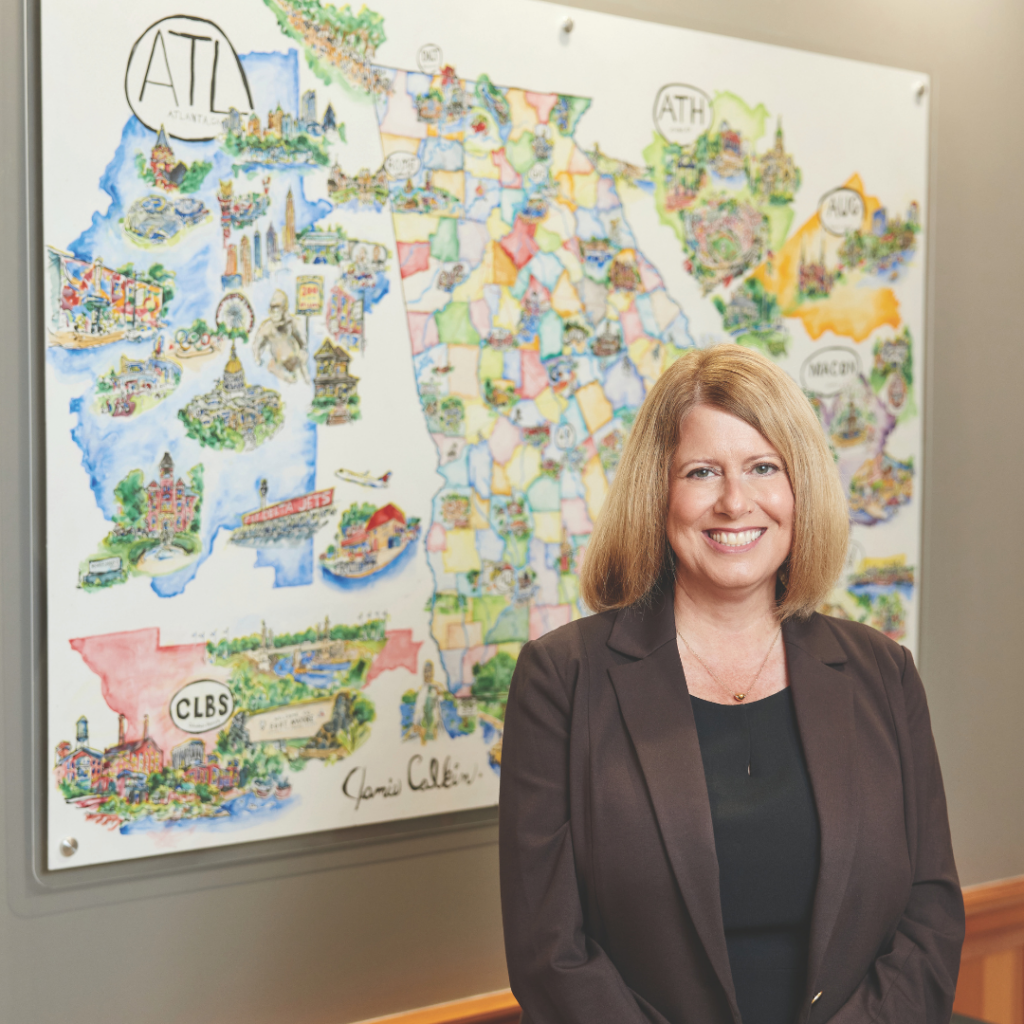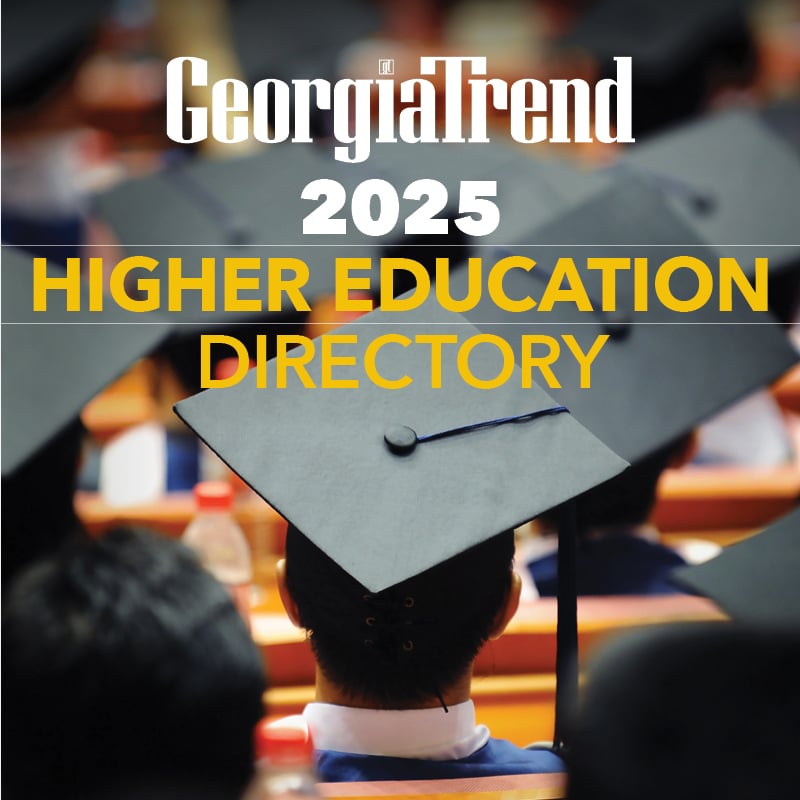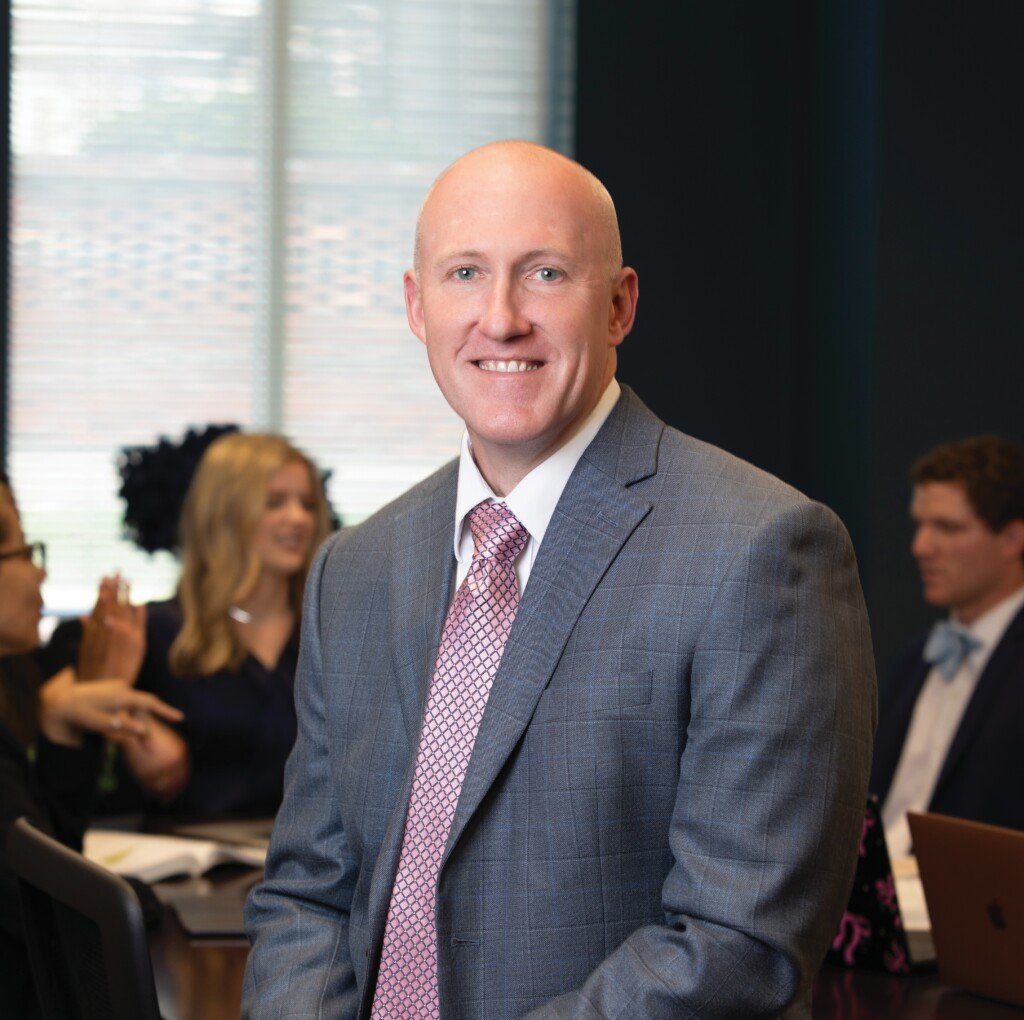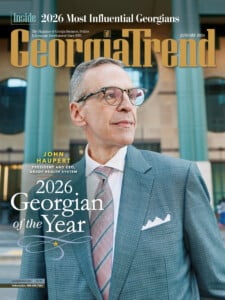Cultivating Leaders Across Georgia
UGA’s Fanning Institute reaches every county with support and training to build resilience and success.
Georgia boasts a whopping 159 counties, more than any other state except Texas, which is almost five times larger. Each county has been shaped, in some way, by the J.W. Fanning Institute for Leadership Development at the University of Georgia. Whatever their differences – from rural to urban, populous to sparse – they share similar challenges and all benefit from advice and support. The institute’s programs focus on leadership development, particularly in nonprofits, youth programming and conflict transformation.
Outreach is part of the core mission of the Fanning Institute – in fact, the institute is a cornerstone of UGA’s Public Service and Outreach division, which houses eight units all dedicated to creating statewide impact. That means tapping into the priorities of each county. “One of the beautiful things about how we do our work is that we are doing it alongside the community,” says Stacy Jones, UGA’s new vice president for public service and outreach. “It’s not that the University of Georgia is sitting somewhere off in the distance thinking about what somebody might need. Rather, Fanning goes into the communities to listen and understand the communities, and then match the training programs, match the research and match the technical assistance to that need.”
The Fanning Institute partners with rural counties on downtown revitalization, coaches nonprofits on sustainability or helps local community leaders facilitate difficult civic conversations.
“If the Fanning Institute is working in a community, they are going to understand what the needs are as the community sees them. They’re going to ask a lot of questions, visit the community and then they’re going to work to bring the right solution or the right training to that area,” says Jones.
“We believe that youth leadership development is one of the most powerful investments that you can make in the state of Georgia.” – Beverly Johnson, director, J.W. Fanning Institute for Leadership Development, UGA
Youth LEAD Georgia

Catalyst for Change: Beverly Johnson, director of the J.W. Fanning Institute for Leadership Development at the University of Georgia. Photo credit: Ben Rollins
There is a commonality among all the counties: the need for leadership development. Building leadership starts young, with a year-long program called Youth LEAD Georgia for high school students from across the state. Created in partnership with Chick-fil-A in 2024, it involves four weekend retreats and a four-day summer bus tour in which students meet with business and community leaders to learn about Georgia’s challenges and opportunities. The 2025 cohort of 30 teens came from 29 counties – rural and urban. “We believe that youth leadership development is one of the most powerful investments that you can make in the state of Georgia,” says Fanning Institute Director Beverly Johnson. “It helps with retaining citizens. It helps with increasing civic engagement. And we really believe that once young people find their voice through our programs, it helps them build confidence and become catalysts for change in their communities.”

College and Career Readiness: Jason Edwards, public service assistant at the Fanning Institute, speaks to students at the 2025 Youth LEAD Georgia Summit, where students statewide convene to improve their leadership skills and discuss issues affecting young people. Photo credit: Contributed
During the summer, Youth LEAD holds a two-day summit on college and career readiness on UGA’s campus. “Our goal for the statewide Youth LEAD Summit is to get at least one youth from all 159 counties to come together and participate in a college and career readiness program on our campus as well as to participate in a discussion of the issues facing young people today,” says Lauren Healey, a faculty member and interim associate director at the Fanning Institute, who works with the youth programs. By purposefully enrolling a geographically broad cohort, the program amplifies leadership in areas often lacking formal civic engagement pipelines. “We try to tailor our participants to match the demographics of Georgia, so the students can really feel they know what the state looks like when they’re done,” says Fanning Institute public service faculty member Brittany Adams-Pope.
Support for Nonprofit Leaders

Serving Nonprofits: Sayge Medlin, public service associate at UGA’s Fanning Institute. Photo credit: Ben Rollins
Healthy communities rely on strong local leadership, which the Fanning Institute supports through its Executive Leadership Program for Nonprofit Organizations. “We work with every type of nonprofit you can imagine – arts organizations, foundations, workforce development, environmental – you name it,” says doctoral student and the institute’s public service associate Sayge Medlin. Over months of intensive programming, participants explore governance, fundraising, evaluation and strategy. For many nonprofit executives, it’s also a rare and welcome chance to step back from daily pressures.
The leadership program “provides them the opportunity to be among a cohort of other nonprofit leaders, sharing their real-world experiences, creating a network and building skills all at the same time,” says Johnson. The program provides training and support for nonprofits, such as helping with strategic planning. “Together, we identify actionable items or direct them to someone with a technical or licensed background, such as a CPA,” Johnson says.
“Nonprofit leadership can be so isolating. Being in a room with peers facing the same challenges provides not just knowledge, but confidence and community,” says Medlin.
From Participant to Civic Servant
McDuffie County Board of Commissioners Chair Chase Beggs, now 29, attended the Fanning Institute’s Leadership McDuffie program and participated in the first class of High Potential Leaders – a graduate-style program for Leadership McDuffie alumni. He says the program gave him the confidence and skills to lead, handle complex situations spanning race, poverty and socioeconomic factors, and build consensus. “The program gave me a deeper understanding of who our community is, where we have been, and where we are going,” he says. “I feel that I am better equipped to serve our community because of the discussions and activities I was a part of during the Fanning Institute’s leadership program.”

Creating a Network: Participants in the Executive Leadership Program for Nonprofit Organization work on such skills as active listening and collaborative engagement while sharing real-world experiences with each other. Photo credit: Contributed
Johnson remembers Beggs as someone who didn’t necessarily see himself as a leader at first. “After having that first interaction with the Fanning Institute, he realized maybe there are some things that I can truly solve and add to in my community,” she says. Eventually, Beggs decided he could effectuate real change and bring innovation to McDuffie County and decided to run for County Commission. “He actually unseated a person who had been on the County Commission for many, many years,” says Johnson.
Developing the Future
Reaching all counties in the state is no small feat. It takes financial flexibility to recruit participants from under-resourced areas and adaptation to keep the curriculum relevant. But the Fanning Institute has some clear advantages – strong support from UGA, networks of alumni and cohorts across the state and a model built to constantly adapt as needs shift.

Increasing Civic Engagement: The 2025 Youth LEAD Georgia cohort kicked off its first session by meeting with UGA President Jere Morehead. Photo credit: Contributed
“We are here to serve the whole state,” says Shannah Montgomery, senior director of marketing and communications for UGA’s Public Service and Outreach. “That means finding pathways into communities across the state and helping support them and be partners with what they want to accomplish.” The Fanning Institute, in collaboration with the UGA’s Carl Vinson Institute of Government, offers training programs designed to support newly elected officials as they transition from campaigning to governing. Programs focus on developing the skills needed for effective public service, such as understanding governance, decision-making and leadership in public office.

Tools for Success: The Fanning Institute also coordinates Georgia Possible, a two-year program to help Clarke County high school students succeed academically, while teaching them about postsecondary opportunties. Photo credit: Contributed
Looking ahead, the Fanning Institute is focused on deepening its work in rural communities, expanding digital programs and building out its efforts around conflict transformation, says Montgomery. Fanning recognizes that rural communities have unique needs and opportunities, and that strong local leadership is essential for community growth and resilience.
Leadership development is central to Georgia’s growth, and the Fanning Institute knows it. By investing in people who then become leaders in their communities, UGA is contributing to the long-term resilience of every county it serves.
“Even if there’s not a single student from your community that goes to UGA, UGA is still making a difference in your community,” says Montgomery. And this approach is reshaping leadership across Georgia – one cohort, one county, one conversation at a time. 







